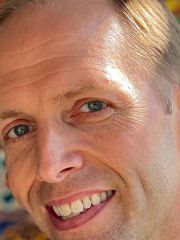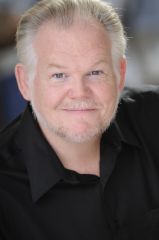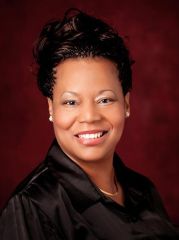Studios
Voice Studio
At UCF, studios are where you study with your private teacher for lessons and masterclasses on your specific discipline. It is also where music majors form a community with others studying the same instrument in an environment that encourages learning from and performing with each other. All music majors study with our world-renowned UCF faculty members with weekly lessons and studio masterclasses.
Voice majors receive one-on-one lessons and a studio class each week, with a focus on the classical art song, opera and oratorio literature. Unlike some other college voice programs, UCF students will always study with an experienced faculty member and not a graduate student. Students gain technical proficiency with their instruments through the knowledge of healthy and efficient phonation, breath management, resonance balancing, posture, diction, interpretation, acting, presentation and more.
Performance opportunities include weekly studio classes, voice area recitals and forums, degree recitals and an opera scenes programs, full operas, and ensemble concerts with the University Chorus, Chamber Singers, and the Men’s and Women’s Choruses. While at UCF, many students have the opportunity to sing with Opera Orlando, our local professional opera company.
A number of our students have been accepted into top graduate programs throughout the country and have gone on to sing with professional opera companies. For those focusing on music education, UCF offers a Bachelor of Music Education (BME) degree with a Track B, focusing on secondary (middle and high school) choral education and a Track C, concentrating on general elementary education.
Jeremy Hunt, Voice
My teaching philosophy is very simple. “Teach to the student in front of me.” It is my job to understand your learning style in order to communicate clearly. I enjoy discussing functional vocal anatomy, using pictures and videos to really see the inner workings of our instrument, if that works for you. If you prefer imagery, I have a plethora of ideas from years of studying and teaching this way. Some students learn best from mimicking and I am comfortable demonstrating from the bass to the treble range. The goal is healthy and efficient singing. It is an honor and a joy to teach voice, and I will always do my very best to teach to the student in front of me.
Thomas Potter, Voice, Opera
Expression and Technique!
Your most important goal, as a singer, must be to express a text, to tell a story and to evoke an emotional empathy or response from your audience. Healthy vocal technique is a crucial tool used to accomplish that goal – but it is only a tool - a tool that when properly used, allows you to freely express both music and text.
The concept of “bel canto style” singing is one that requires a great deal of flexibility of the singer. Not only should a voice move well and navigate florid passages (no matter the size of the instrument!), but I’m also referring to encouraging a flexibility of color in the sound – and this can only happen when one sings with clarity and ease. Real vowels – real emotions…
The study of vocal technique begins with the understanding that the vocal instrument can be divided into three critical parts:
- Breath management: singers need to first understand the simple natural function of the breathing mechanism – only then can they learn to economically control the rate of exhalation – which is the real key to so-called “support”.
- Resonance: is the other component we must master – both in terms of correct language articulation and of vocal tract filtering, which leads to register unification and an easy and efficient "projection" of our sound.
- Phonation: On the other hand, phonation itself is something all singers must strive NOT to control – by getting out of the way of the natural phonation process of their own unique instrument. This third part seems simple, but it is often easier for us to learn to do something than to learn how NOT to interfere with nature.
Teaching classical voice requires a thorough knowledge of the vocal instrument and a basic understanding of the physics of sound (those very physical properties of sound allow a singer to be heard over a 100 piece orchestra in a 2,000+ seat theater without amplification), but without the study of musicianship and expression, vocalism can be boring and, in a manner of speaking, no longer music…
Musicianship!
Singers are not the creators – but rather the interpreters of music and text, and as such, you need to possess an unquenchable thirst to discover and uncover the composer's and author/poet/librettist's intent, and to develop the technical, linguistic, and musical skills to express that intent. Of course, you bring your own vocal quality, your personal experiences and paradigms and creative thinking to the music and text you perform.
My Job!
Having come to teaching after a substantial career on the operatic stage, it’s very important to me that you see the “big picture", that you understand some of the complexities of the profession, and that you "learn how to learn" (that you become a self-teacher and self-motivator). Although we think of voice study as principally technique (the "craft") and musicianship (the "art") - there are other aspects of preparation for the profession that must be addressed: professional behavior and responsibility, making good repertoire choices, and being passionate yet patient with both your vocal and career development, to name but a few.
The first order of business with a new student is to look with you at your current behavioral patterns and habits when you sing. So many young singers fall into the trap of imitating the sound of other singers – often singers who are older than they – I try to help you strip away tensions and habits that are not efficient – and to really find out what your instrument should sound like at your current age.
I love teaching at UCF – it’s an environment like no other – where, while being a part of a huge University, the music department is small enough to offer lots of personal attention to every student – at the same time, it’s a place where you will learn how to be more independent – a place where you truly prepare yourself for whatever the next steps in your path will be…
…and then there’s Opera!
Since the fall semester of 2005, I have enjoyed not only teaching voice here, but running the Opera program at UCF. Click here to visit the UCF Opera page.
JoAnne Stephenson, Voice
Excellent teaching is enlightening and thought-provoking. It motivates and encourages students to work hard. Excellent teaching also inspires and compels one to pursue the acquisition of knowledge in the subject matter that is being taught. For almost forty years, I have used this approach to teach private vocal instruction to my students and have seen knowledgeable, confident, and independent musicians develop under my tutelage.
I ascribe to the methods of Bel Canto singing and apply the tenets of this school of thinking to my studio. Working systematically, I teach students what good singing feels like when it is done correctly. For example, when teaching students how to breathe, I demonstrate how to fully support their voice by showing them all the muscles that are needed in singing. Then, I show them how to isolate, strengthen and employ these muscles. Finally, I explain to them when these muscles should be used. As the student learns to engage the body properly, they begin to produce a freer sound with more resonance and beauty.
Another Bel Canto technique use in my teaching is the production of pure vowel sounds and clearly articulated consonants. Under my instruction, students learn when they are, and when they are not producing a pure vowel. Additionally, students learn exactly when to modify the vowel and how to properly execute modification. I have developed specific exercises to help students practice and produce clearly enunciated consonants. When students follow my instruction, they are the able to use all the articulators in the body to pronounce and produce words that are discernable and phrases that are intelligible.
Additionally, I routinely include exercises of well-known teachers of the Bel Canto period and beyond by using the vocalises of NIccolo Vaccai, Giuseppe Concone, Henrich Panofka and others. These books of vocal exercises are primarily used to teach students specific ornamentations unique to the music of the Bel Canto school and specific to the vocal repertoire of the Baroque, Classical and early Romantic Periods. Under my tutelage, students learn how to recognize and execute various ornaments taught in Bel Canto style. Along with teaching students how to sing a variety of ornaments, I also use these vocalises to teach students how to develop greater agility throughout their range with ease and precision.
Since the classical approach to singing is not desired by all the voice students I have encountered, I have adapted the foundational constructs of the Bel Canto style for contemporary singers. Having worked with many vocalists of contemporary styles in various genres such as Gospel, Jazz, and other forms of popular singing, I have seen students greatly benefit from this type of “modified” Bel Canto vocal instruction.
Excellent teaching is always possible when working with students who are active participants in the education. The student who is an active participant, is the student who is interested enough in a subject matter to pursue learning more about that subject on their own. This student may branch out on his/her own, and study the repertoire of a particular singer, read additional information on a time period in music of interest, or search out and learn the stylistic approaches of their favorite composers.
The successful collegian is also patient and detailed oriented. They are disciplined enough to practice a concept until it is mastered. They realize that they must achieve a high level of competence in one level of their technical development before they can proceed to the next level of instruction. This “line upon line” teaching approach encourages patience and promotes the student’s ability to develop a solid foundation in music that cannot be destroyed or disputed. It also puts this person in control of how much information they acquire during their years of formal training. The harder they work, the easier it is for them to receive more knowledge. This successful, patience individual realizes that the study of music is a “marathon” not a “sprint” to the finish line. They understand and embraces the ideology that one who determines to study music agrees to be a lifelong pupil.
Lastly, an excellent teacher lead by example. I am an active performer, adjudicator, and lecturer. I demonstrate to my students the result of the healthy singing technique being taught them by inviting them to witness my live performances. Additionally, I learn new repertoire through adjudicating and assign it to students when appropriate. Finally, I always research information (even on areas in which I have lectured before), to see if new materials are available and applicable to the upcoming presentation.
After all these years of singing and teaching, this career continues to be joyful and rewarding career. Students under my instruction have gone on to get accepted to graduate programs at Julliard, Manhattan School of Music, and other prestigious schools in the United States. Other students have had successful performing careers at Disney and Universal Studios, while many others have had successful and rewarding international, national, and local teaching careers.
Alumni Highlights
Alana Souto ’11
B.M., Music Performance | Voice
Music Teacher, European Academy of Early Education
Allison Hughes ’98
B.M., Performance | Voice
Solo and Chorus Performer, Music Teacher
Amber Ikeman ’11
B.A., Music | Voice
Nationally Touring singer/songwriter
Cristyn (Spencer) Schroder ’04
B.M., Music Performance | Voice
Teacher, Performer
Dale Morehouse ’77
BME | Voice
Associate Professor, Conservatory of Music and Dance, University of Missouri, Kansas City
Deanna (Robers) Giron ’00
BME | Voice
Voice and Piano Teacher, Next Generation Kids, Longwood; Director of Lochwood Children’s Choir, Sanford
Denise Mock ’11
BME; B.M., Music Performance | Voice
Music Teacher, Lake Whitney Elementary
Emily Ford-Coates Hildendorf ’09
B.M., Music Performance | Voice
Faculty, The Music Academy of North Carolina
Erin Stillson ’10
B.M., Music Performance | Voice
Performer – Universal Orlando, SeaWorld, Bach Festival Society, Sundance Theatre Laboratory; Teacher, Genius Music Academy
Jennifer (Bangert) Boyd ’96
BME | Voice
Children’s Choir Director, Church of Winter Park
Jessica (Pulver) Albright ’01
BME | Voice
M.M., Music Therapy; Florida State University Board Certified Music Therapist and NICU Music Therapist
Kate Kostopoulos ’12
B.M., Music Performance | Voice
M.M., Vocal Performance, Cleveland Institute of Music
Kirstin McDonald ’03
BME | Voice
Owner/CEO, Rhapsody Music Studios
Kristoffer “Kit” Cleto ’11
B.M., Music Performance | Voice
M.M., Voice Performance & Literature, University of Illinois at Urbana-Champaign; Performer, Bethesda Summer Festival as Tamino in “Magic Flute,” Opera Breve Vocal Instensive as Ferrando in “Cosi Fan Tutte”
Lauren “Lofo” Forbis
BME | Voice
Music Teacher, Lake Trafford Elementary School
Lauren (Hancock) Mason ’12
B.A., Music | Voice
Full-time country music record promoter; Songwriter
Lisa Cossentino-Miller ’10
B.M., Music Performance | Voice
M.M., Vocal Performance, Loyal University, New Orleansa
Mary Witaszek ’11
BME | Voice
Music Teacher, St. Charles Borromeo School
Matt Hyder ’08 ’12
BME; M.A. | Voice
Ph.D. in Musicology/Ethno-Musicology, University of Kentucky, Lexington
Nicolette Fontaine
Minor | Voice
Performer, Palm Beach Opera
Rallia Gettings ’11
B.A., Music | Voice
Vocal Teacher, Broadway Music Academy
Samantha (Barnes) Daniel ’04 ’07
B.A., Music; B.M., Music Performance | Voice
Performer, MONC Semi-finals, Metropolitan Opera
Terri Brinegar ’13
M.A., Performance | Voice
Chorus Director, Osceola County Public Schools
Lyndsey (Thornton) Woods ’04
B.M., Music Performance; B.A., Music | Clarinet, Voice
Music History Instructor, FSU




